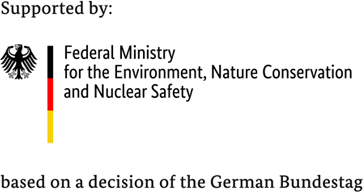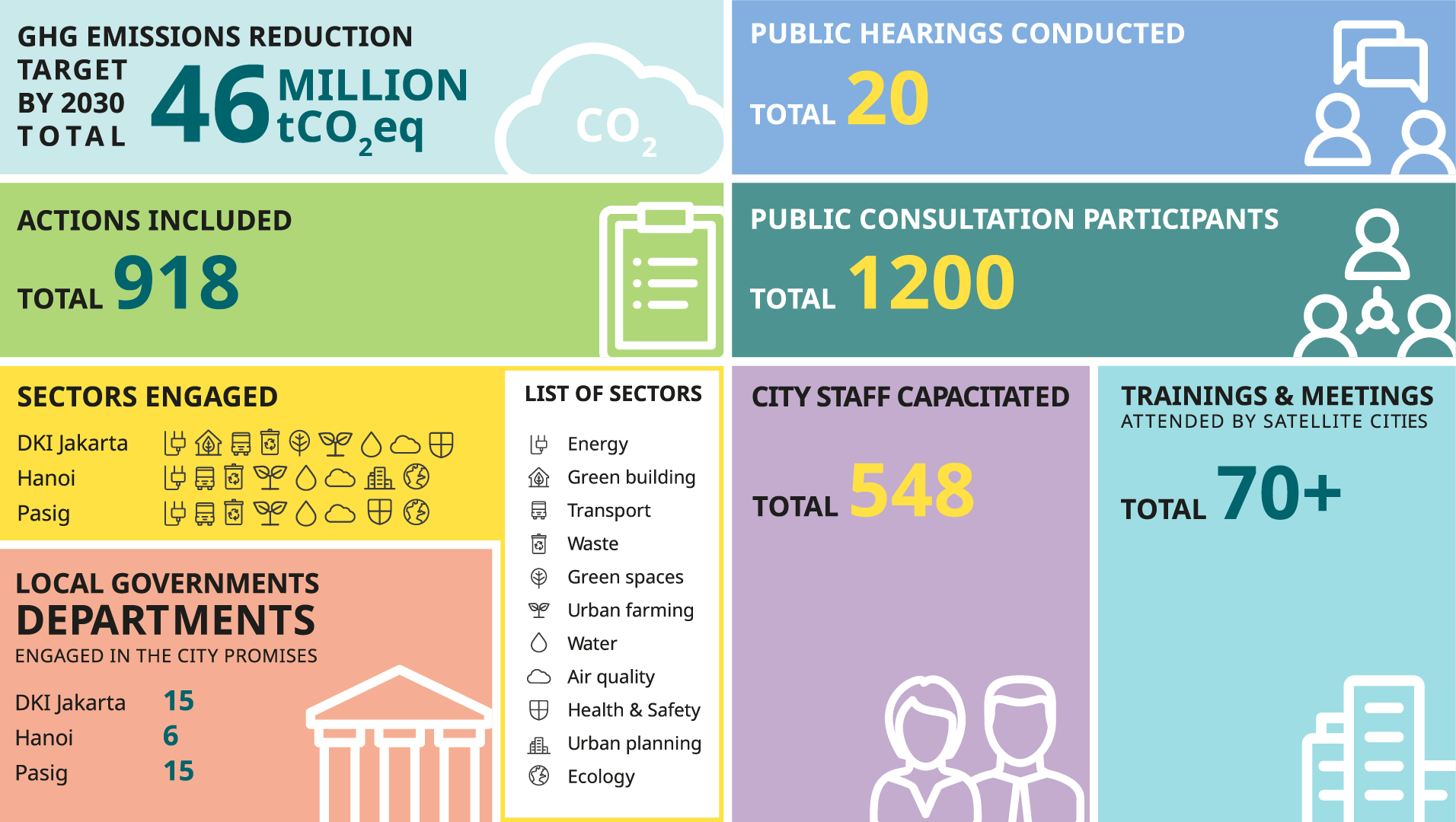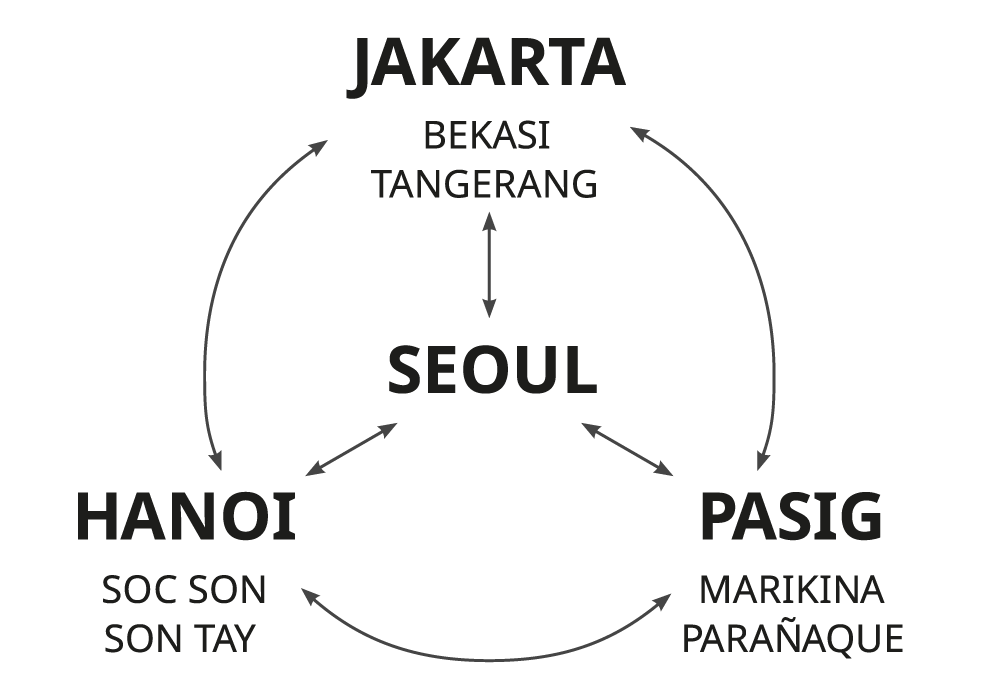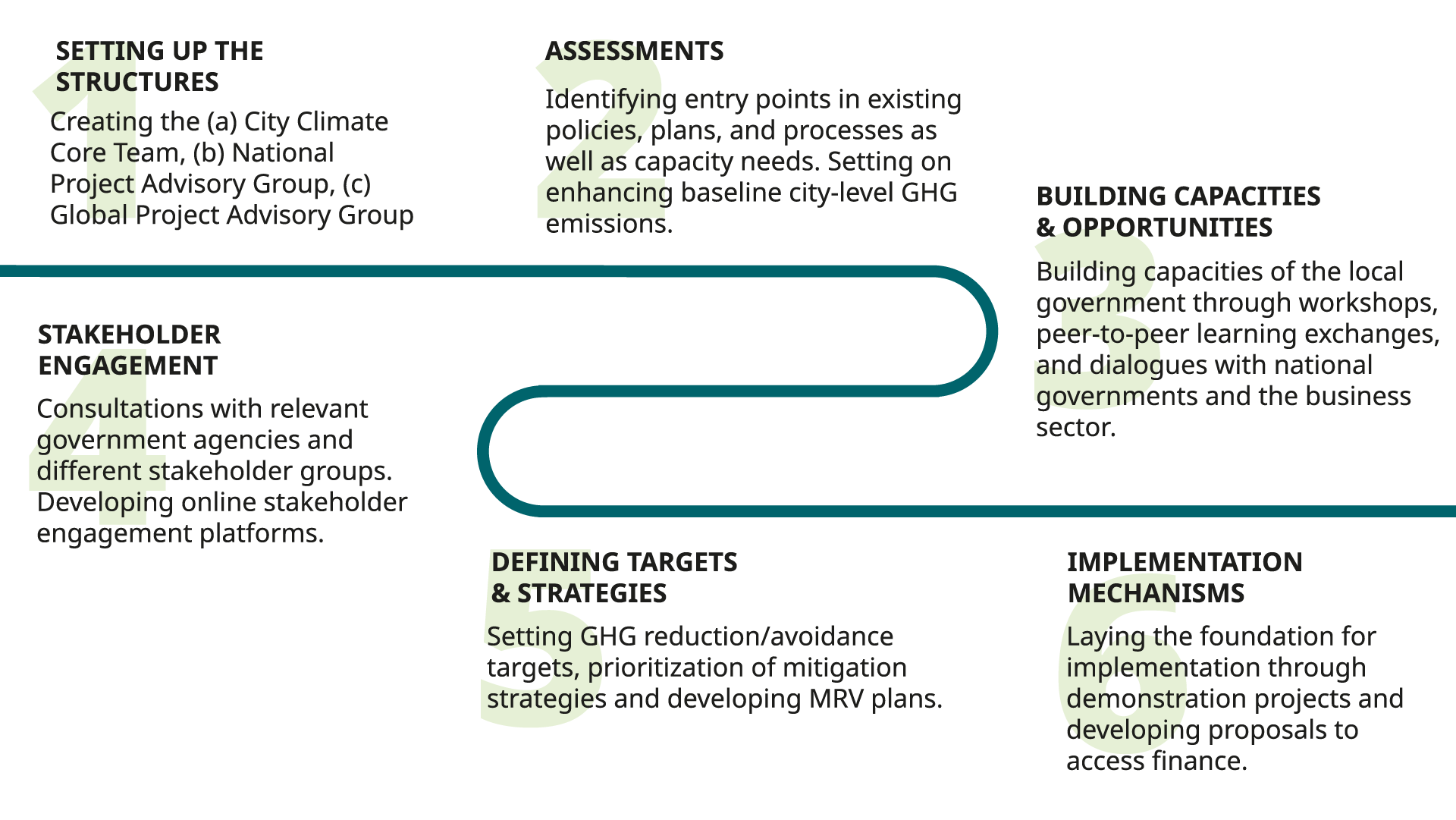About Ambitious City Promises
While there is growing global recognition of the role of cities in delivering the goals of the Paris Agreement, the reality of harnessing this immense potential remains a challenge. Many Southeast Asian cities are strengthening their adaptation and disaster risk reduction and management (DRRM) measures in the wake of intense local impacts from climate change. Mitigation measures, conversely, can feel more abstract and illusive. In advancing urban sustainability, local governments must simultaneously contribute to emissions reduction efforts and address pressing development concerns.
Many city-level policies require consensus and stakeholder participation in order for them to be fully realized. Therefore, engaging stakeholders in city-level climate action plans can further elevate governments’ climate ambitions. Inspired by the Promise of Seoul, a comprehensive climate strategy adopted by the Seoul Metropolitan Government in 2015, the Ambitious City Promises Project provides a pathway for Southeast Asian cities in pursuing stakeholder-driven strategies towards low emission development pathways.
Through Ambitious City Promises, local governments in Southeast Asia adapted this model of inclusive, ambitious climate action, mainstreaming low emission development strategies and creating new climate leaders. By spreading the vision behind the Promise of Seoul, Ambitious City Promises showed how collective action taken in cities, with leadership from local governments, can contribute to achieving and ratcheting up national and global climate goals.





